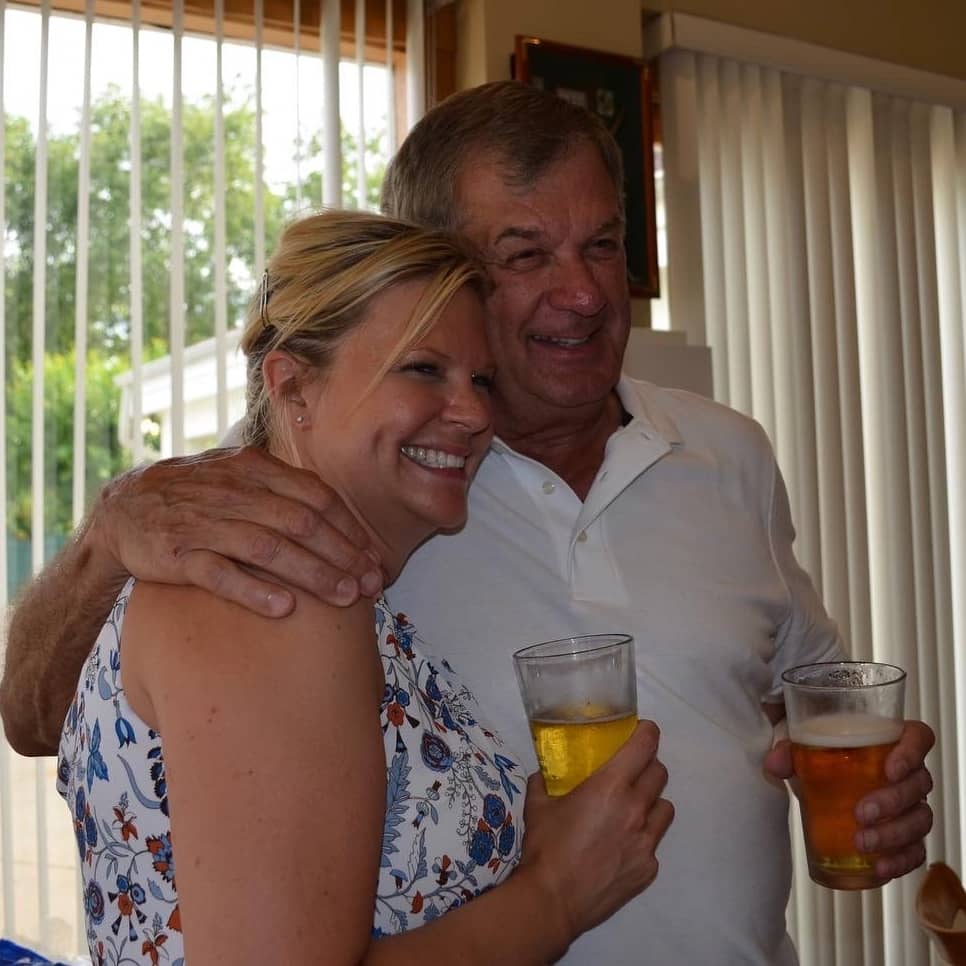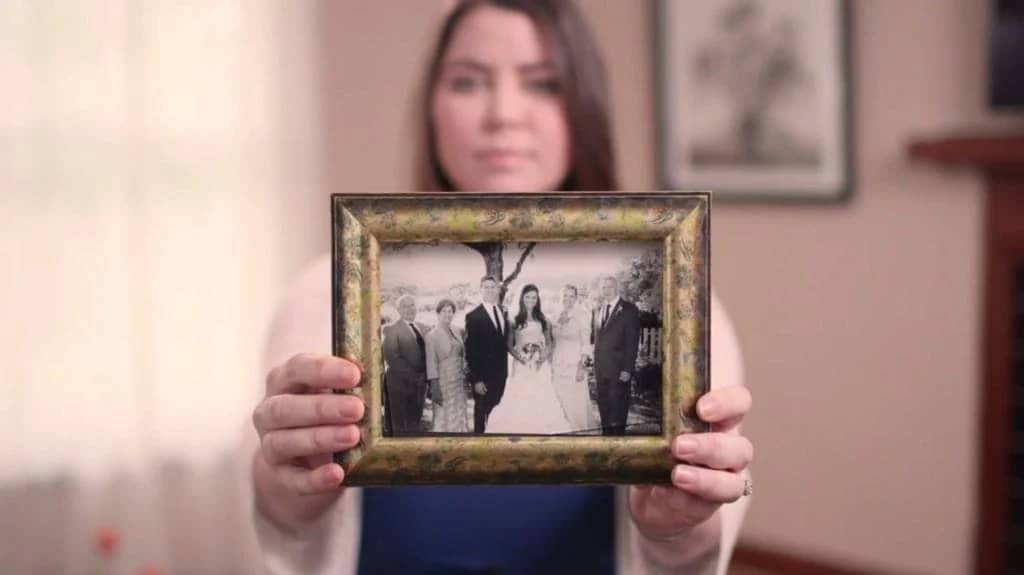
Julie shared her story in November of 2022.
My father loved working with his hands. He could build or fix anything. When I was a kid, he would let me help or watch so that I could learn. When I was an adult, he helped me renovate two homes. He was always careful and cautious in his approach. If we were going to build a table, for example, he’d draw out plans, measure multiple times, lay out the wood, and then think about it for a few days. Me, I’m always figuring things out as I go along; I’d be cutting up wood before I’d even measured.
From Dad, I learned the importance of taking a deep breath and a step back, of not letting things get out of control.
When my son was born in May 2020, I named him Patrick, after my dad, in hopes that he would inherit even a fraction of my father’s warmth and confidence. We had so many dreams for what their relationship would be like. Dad was so excited to be a grandfather.
At 72, Dad was very active, walking five miles every day, doing yoga and light weightlifting, and enjoying golfing with his friends. He was doing part of his normal exercise routine in January 2021 when he noticed some weakness in his left arm. A day or two later, he felt his left foot dragging a little.
He went to primary care, where the doctors first assumed he had had a mini stroke. But that turned out to be incorrect. In the coming months, Dad proceeded to see several neurologists. He also received physical therapy and occupational therapy sessions. Having always been very goal-oriented, Dad was extremely frustrated by the sessions: “I’m not getting better, I’m not getting stronger, I don’t know why we keep doing this.” Meanwhile, he was declining day by day: He needed a cane by February. By April, he was using a walker. He was in a wheelchair by June.
In June, the doctors landed on a provisional diagnosis, a combination of amyotrophic lateral sclerosis (ALS) and corticobasal degeneration (CBD). These are each fatal diagnoses with proven track records. My father would lose his ability to use any muscles, affecting his ability to eat, speak, move his eyeballs and, eventually, breathe.
In early August, Dad went on hospice care. The first time the hospice doctor came, my dad asked him if he could take his life. The doctor explained that he couldn’t, and that while the option of medical aid in dying was available in nearby D.C., it was not an option in Virginia.
Unfortunately, getting my dad to D.C. or another jurisdiction where aid in dying was authorized was out of the question. Getting him in and out of a vehicle was all but impossible. His disease was progressing so quickly that he would have a need, we would order an item from Amazon to help with it, and then 48 hours later when it arrived, his deterioration had already surpassed its usefulness. We just didn’t have the time to move him out of state.
My father had always been a strong man, but now there was nothing left of him. He was wasting away. He was losing his ability to speak. We bought him a laptop, which he could type on for a while, but then his fingers stiffened too much to work the keys. So we bought him an iPad, but his finger dragged too much. He was losing the ability to use his hands at all. Several times, he begged my mother for a merciful death.
By August, he was choking a lot more. Every breath he took was not precious; it was torture. My father, a Renaissance man who grew up in a farming community, could build anything, loved theater and the symphony and traveling the world with my mother, could no longer communicate his basic needs. It was clear that he just wanted to curl up and disappear. He was 100% cognitively present but stuck in a body that could no longer do the things he loved. The only thing that would make him smile was seeing his grandson.
Although hospice was wonderful and very responsive, they couldn’t resolve all of Dad’s pain. They could do physical therapy geared toward comfort care, which helped prevent Dad’s muscle contractures for a while, and they could provide medications, but there were times when his pain couldn’t be managed by hospice. During those days, he would suffer from muscle spasms and cramps that would contort his body and elicit guttural moans so deep they still give me nightmares.
Dad’s pain got so bad at the end of his life that we couldn’t manage it at home anymore. Eventually we had to call an ambulance to take him to the hospice house, where they put him on so much morphine that he was basically in a coma until his death on October 5, 2021.
My father was raised Catholic. He received communion every Sunday even while he was dying, and at the end, his priest came to give him last rites. Dad also believed, as he wrote in the letter he left for me after his death, “Simply being alive is not the same as living.” My father always had the best advice for me.
Dad also always wanted to hear what I had to say. I know that if he could hear me now, he’d be proud. Medical aid in dying is medical care: It can significantly improve someone’s last days or weeks of life. Having witnessed how disease slowly drained the life from my father, I know without a doubt that terminally ill Virginians deserve a sense of peace and control at the end of their lives. Medical aid in dying can give them that.

Nothing advances our common cause of improving end-of-life care like real stories. Inspire others and drive change by sharing your story today.
Mail contributions directly to:
Compassion & Choices Gift Processing Center
PO Box 485
Etna, NH 03750